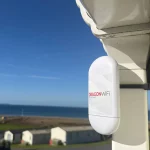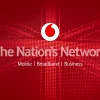Ofcom Says UK ISPs Must Decide Who is a Subscriber for its Piracy Code
The UK telecoms regulator, Ofcom, has told a Westminster Media Forum event that it will be the responsibility of each broadband ISP to decide which of their customers are officially defined as “subscribers” and thus susceptible to the new copyright infringement rules, which are designed to clampdown on “illegal” internet piracy.
The new obligations code describes how and when the markets six largest internet providers should issue Notifications Letters to their customers, which is designed to warn them when potentially unlawful activity has been detected upon their accounts (e.g. sharing a copyright film over public P2P networks). Repeat offenders could eventually face service restrictions and or court action by Rights Holders.
Advertisement
But Ofcom’s code has at times appeared to be somewhat conflicted over the definition of “subscribers” and “communication providers“, which is particularly true for some WiFi networks and similar shared infrastructure (shared business and library networks etc.). For example, a hotel might buy a business broadband connection and then share that out to its guests, but does this make them a “subscriber” of the ISP, and thus liable for all the activity of their third-party guests, or a “communication provider“?
The UK government’s communications minister, Ed Vaizey MP, has repeatedly said that “public intermediaries” (e.g. libraries and education networks) will “not be bound” by the code and confirmed that ISPs would not be required to send letters to such organisations (here). But both Ofcom and Vaizey also said “there may be instances when a public intermediary should be classed as a subscriber“, albeit without actually giving any examples.
At the time Vaizey suggested that further details concerning how public intermediaries could register their status with an upstream ISP will be worked out as part of the “implementation process“. Now Ofcom has decided to pass the buck back to ISPs.
Justin Le Patourel, Ofcoms Head of Online Copyright, said (Out-Law):
“The DEA is clear: only subscribers are the legitimate recipients of notifications; communications providers are not. It is the DEA, not Ofcom, that defines these actors. And it is for qualifying ISPs to apply such definitions. Ultimately the independent appeal body will decide whether an ISP has done this correctly by looking at the facts in each individual case brought to it.
All Ofcom can do is offer some guidance on our interpretation of the definitions, which may play a role in the event that we consider enforcement action for failure to notify subscribers. To that end, we’ve already said that we believe that an individual who receives an internet service primarily for the purpose of using it, but who happens also to make it available to others by opening a Wi-Fi connection, is a subscriber, and can therefore legitimately receive notifications.
That’s different to a library or a cafe which can demonstrate that it receives an internet service predominantly for the purpose of making it available to customers. … Anyone who receives a letter and thinks they may be a communications provider can contact their provider and explain why this is the case.”
Le Patourel suggested that businesses could also contact their ISP to have their accounts identified as a “communications providers“, such as by showing their company number or other details. But he warned that ISPs which regularly got their classifications wrong could face unspecified enforcement action.
Advertisement
Mark is a professional technology writer, IT consultant and computer engineer from Dorset (England), he also founded ISPreview in 1999 and enjoys analysing the latest telecoms and broadband developments. Find me on X (Twitter), Mastodon, Facebook, BlueSky, Threads.net and Linkedin.
« UK Business ISP Claranet Gobbles Managed Provider Star for GBP55m

















































Comments are closed